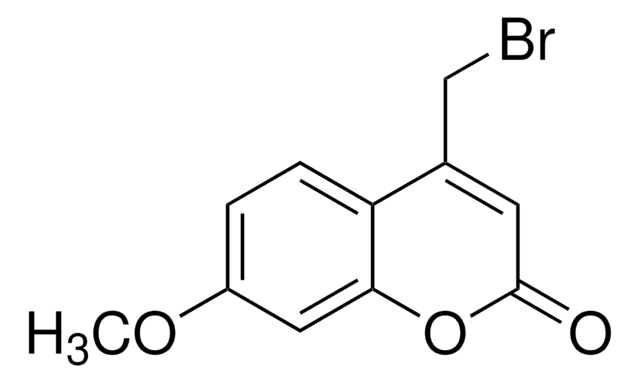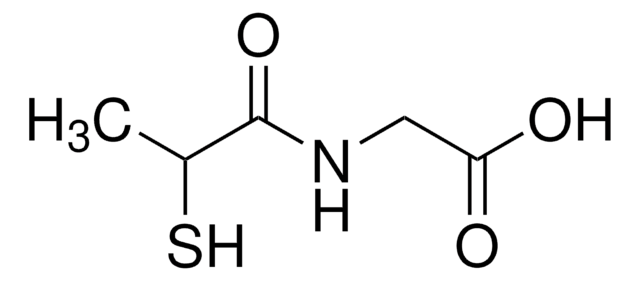F4383
7-Fluorobenzofurazan-4-sulfonic acid ammonium salt
≥98%
Synonym(s):
4-Fluoro-7-sulfobenzofurazan ammonium salt, 7-Fluorobenz-2,1,3-oxadiazole-4-sulfonic acid ammonium salt, Ammonium 7-fluorobenzofurazan-4-sulfonate, SBD-F
About This Item
Recommended Products
Assay
≥98%
storage condition
protect from light
fluorescence
λex 380 nm; λem 515 nm
storage temp.
−20°C
SMILES string
N.OS(=O)(=O)c1ccc(F)c2nonc12
InChI
1S/C6H3FN2O4S.H3N/c7-3-1-2-4(14(10,11)12)6-5(3)8-13-9-6;/h1-2H,(H,10,11,12);1H3
InChI key
JXLHNMVSKXFWAO-UHFFFAOYSA-N
Looking for similar products? Visit Product Comparison Guide
General description
Application
Storage Class Code
11 - Combustible Solids
WGK
WGK 3
Flash Point(F)
Not applicable
Flash Point(C)
Not applicable
Personal Protective Equipment
Certificates of Analysis (COA)
Search for Certificates of Analysis (COA) by entering the products Lot/Batch Number. Lot and Batch Numbers can be found on a product’s label following the words ‘Lot’ or ‘Batch’.
Already Own This Product?
Find documentation for the products that you have recently purchased in the Document Library.
Customers Also Viewed
Our team of scientists has experience in all areas of research including Life Science, Material Science, Chemical Synthesis, Chromatography, Analytical and many others.
Contact Technical Service












